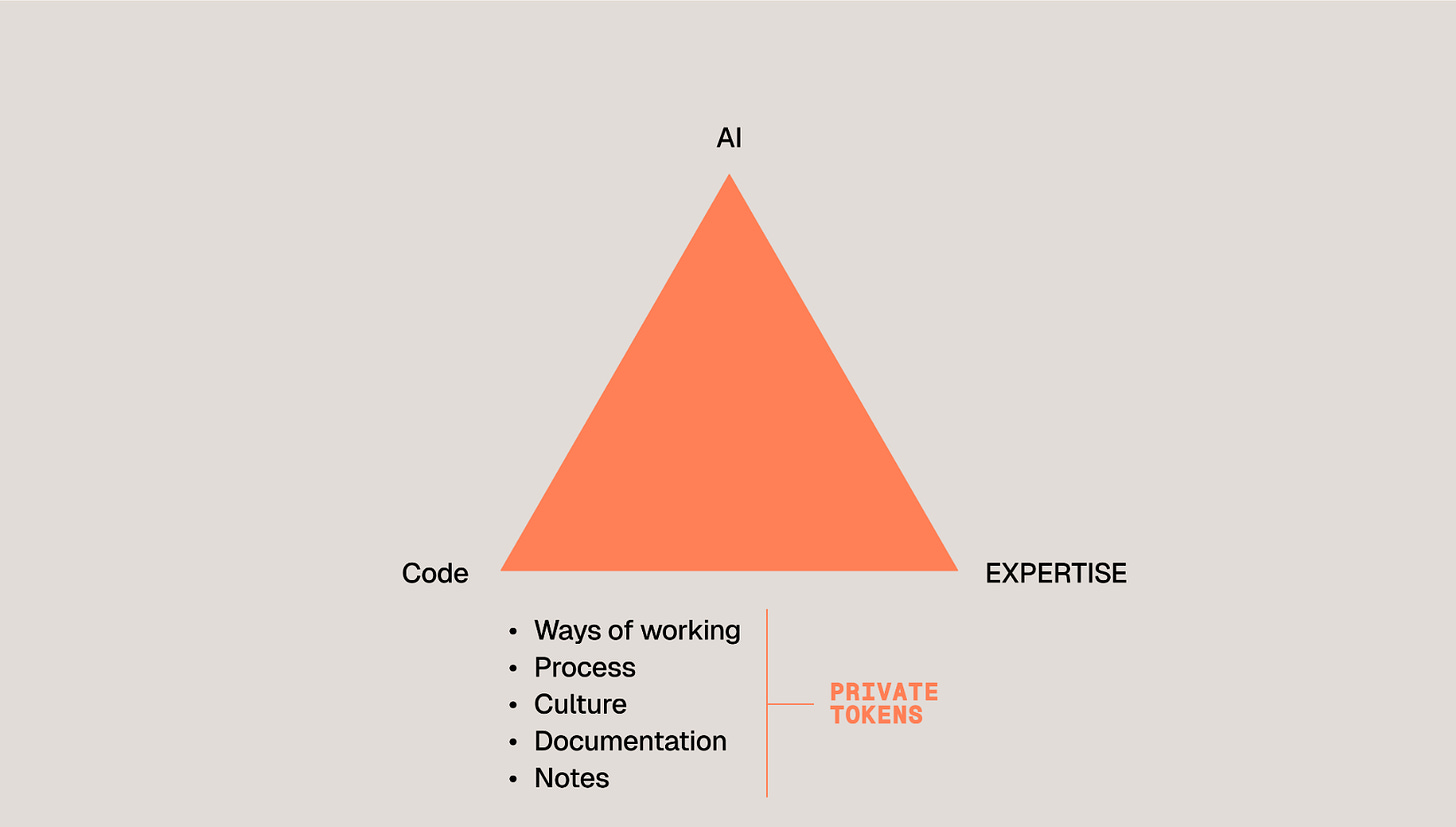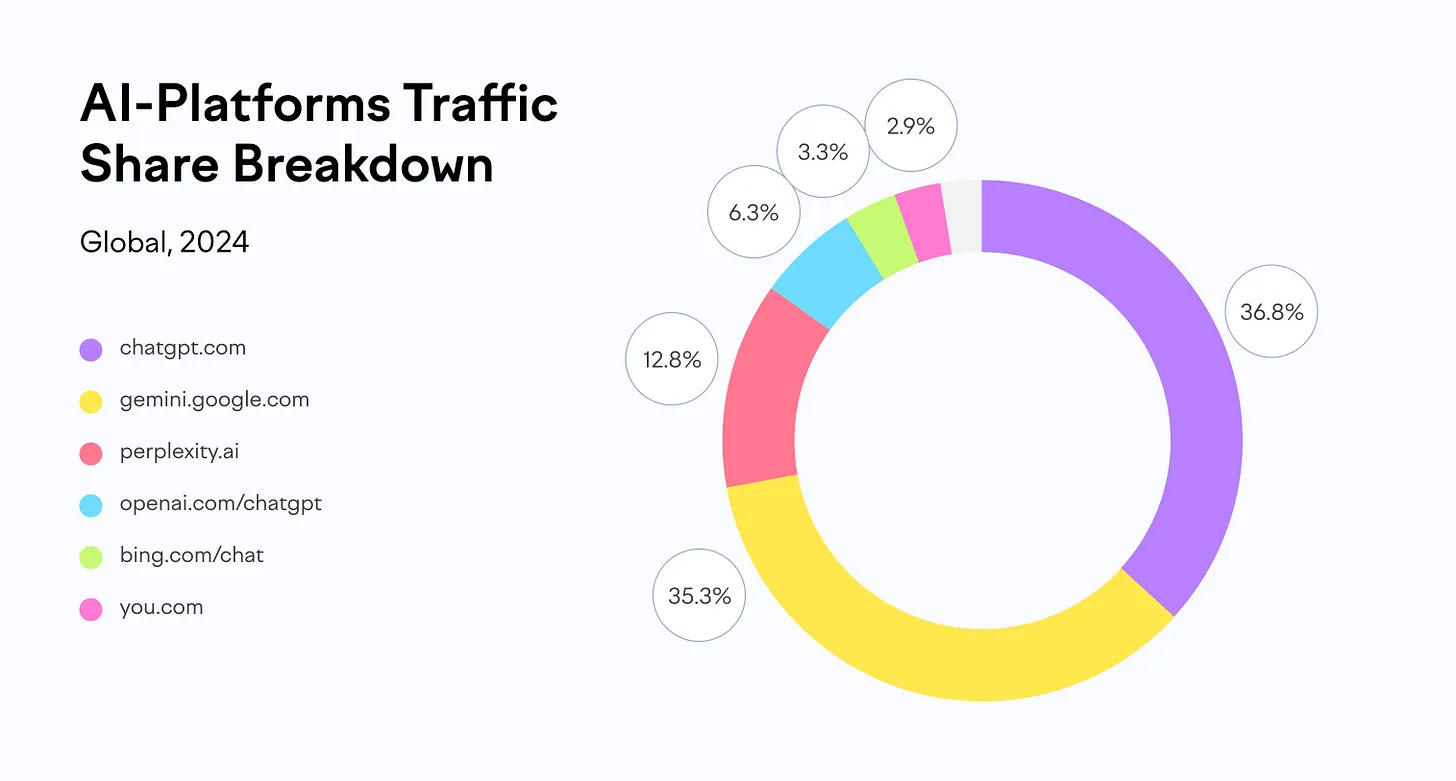Build/License Framework for AI // BRXND Dispatch vol 84
Plus, breaking down Google I/O.
You’re getting this email as a subscriber to the BRXND Dispatch, a newsletter at the intersection of marketing and AI. We’re hosting our next BRXND NYC conference on September 18, 2025, and currently looking for sponsors and speakers. If you’re interested in attending, please add your name to the wait list. As space is limited, we’re prioritizing attendees from brands first. If you work at an agency, just bring a client along—please contact us if you want to arrange this.
Luke here. After countless conversations with brands over the last year, one question keeps coming up for us: when do you build your own AI tools, and when do you license?
The team at Alephic spent some time digging into this, and we’re ready to share what we’ve found in our new report: The Build/License Framework for AI in Marketing.
In our analysis, the true competitive edge no longer lies in software itself, but in what we call your “private tokens”—the exclusive data and institutional know-how that shape how your teams operate. These are your playbooks, heuristics, cultural shorthand, and tacit knowledge—the subtle but powerful elements that make your organization unique.
Public SaaS solutions can’t replicate this depth. They fall short when it comes to capturing the nuance that lives beyond raw data. So the real question isn’t whether you can afford to build. It’s whether you can afford to let anyone else own the learning your data unlocks.
The new best practice in the AI era is to blend: license SaaS for speed and standardized needs, but build where differentiation or compliance demands it.
What’s in the report?
A pragmatic six-lens decision matrix that helps you evaluate each AI use-case
A modern financial model that accounts for both capex/opex considerations and regulatory impacts
A clear roadmap for implementing hybrid strategies that blend building and licensing
Regulatory considerations for the EU AI Act, UK framework, and US initiatives
We’ve also included a stakeholder alignment cheat sheet to help you navigate the different concerns of your CMO, CTO, CFO, and legal team—each of whom has very different priorities when it comes to AI implementation.
If you’re trying to figure out where AI fits into your marketing stack for 2025, download the full framework below.
P.S. If you want to chat about this directly or have us walk your team through it, just reply to this email. We love talking about this stuff.
What Caught My Eye This Week (Luke)
This week at I/O 2025, Google unleashed a tidal wave of updates that weave its Gemini AI more deeply into just about everything. The new AI Mode in Search is going live for all US users, letting people ask complex questions, create charts, and shop right from the search bar. Gemini is also making its way into Chrome, where it can help summarize pages and guide users across the web. On the creative side, Google showed off upgraded versions of its image and video generators, Imagen 4 and Veo 3, plus a new AI filmmaking app called Flow that can stitch together short scenes based on text prompts. There’s far too much to cover, but here are a few more standouts: Gmail’s getting AI replies that actually sound like you, Google Meet now translates speech in real time, and a new tool called Stitch helps design app interfaces from sketches or screenshots. Add in AI-assisted shopping, automatic password fixes, and you get the picture. Hard to believe this is the same company people were writing AI obituaries for not long ago.
OpenAI is buying Jonny Ive’s hardware company in a $6.5B deal. Whether the new venture will produce a so-called iPhone killer remains to be seen. The real question is whether Apple can crack AI before OpenAI figures out hardware.
In a new Stratechery interview, Jensen Huang argues that the future of AI isn’t about choosing between fast one-shot answers and slow agentic workflows—it’s about eliminating the tradeoff altogether. As compute power accelerates—the Nvidia CEO predicts a 100,000-fold increase over the next five years—he makes the case that reasoning models will become the default, delivering real-time intelligence across everything from chatbots to autonomous systems.
Perplexity is finalizing a $500M funding round led by Accel, boosting its valuation to $14B—a $5B increase in just six months—as it races to build tools like a voice-enabled assistant and an agentic browser to rival Google.
Windsurf (recently acquired by OpenAI) just introduced SWE-1, its in-house model developed to handle the complete software engineering workflow—from design and planning to coding and beyond.
Klarna CEO Sebastian Siemiatkowski, who’s been one of the loudest voices claiming AI will slash headcounts, just admitted the company went too far with their AI customer service automation. Now they’re scrambling to bring human agents back into the mix (though keeping it remote and flexible).
The Trump administration is rescinding Biden-era regulations controlling the export of AI chips. In a strategic shift, the Department of Commerce now plans to replace blanket restrictions with country-by-country negotiations.
Cloudflare CEO: For every single visit AI services drive to a website, Google scrapes 6 pages, OpenAI grabs 250, and Anthropic takes a staggering 6,000.
Netflix is introducing a new ad format that will integrate brands’ products into custom backgrounds inspired by its show content. Meanwhile, rival streamer YouTube is rolling out an ad feature called “Peak Points,” which uses Google’s Gemini AI to analyze videos and pinpoint the moments of highest viewer engagement or emotional impact.
Perplexity is teaming up with PayPal to enable in-chat shopping, allowing users to make purchases directly within the platform using PayPal or Venmo.
SEO x AI: What happens when your customers skip Google and go straight to ChatGPT? A good breakdown on how LLMs gather and surface information—and what marketers can do to shape the answers.
New Jobs
Communications and Technology Strategy Director at Publicis Groupe, New York City (link)
Have a job you would like to share in the newsletter? Contact us.
If you have any questions, please be in touch. If you are interested in sponsoring BRXND NYC, reach out, and we’ll send you the details.
Thanks for reading,
Luke





